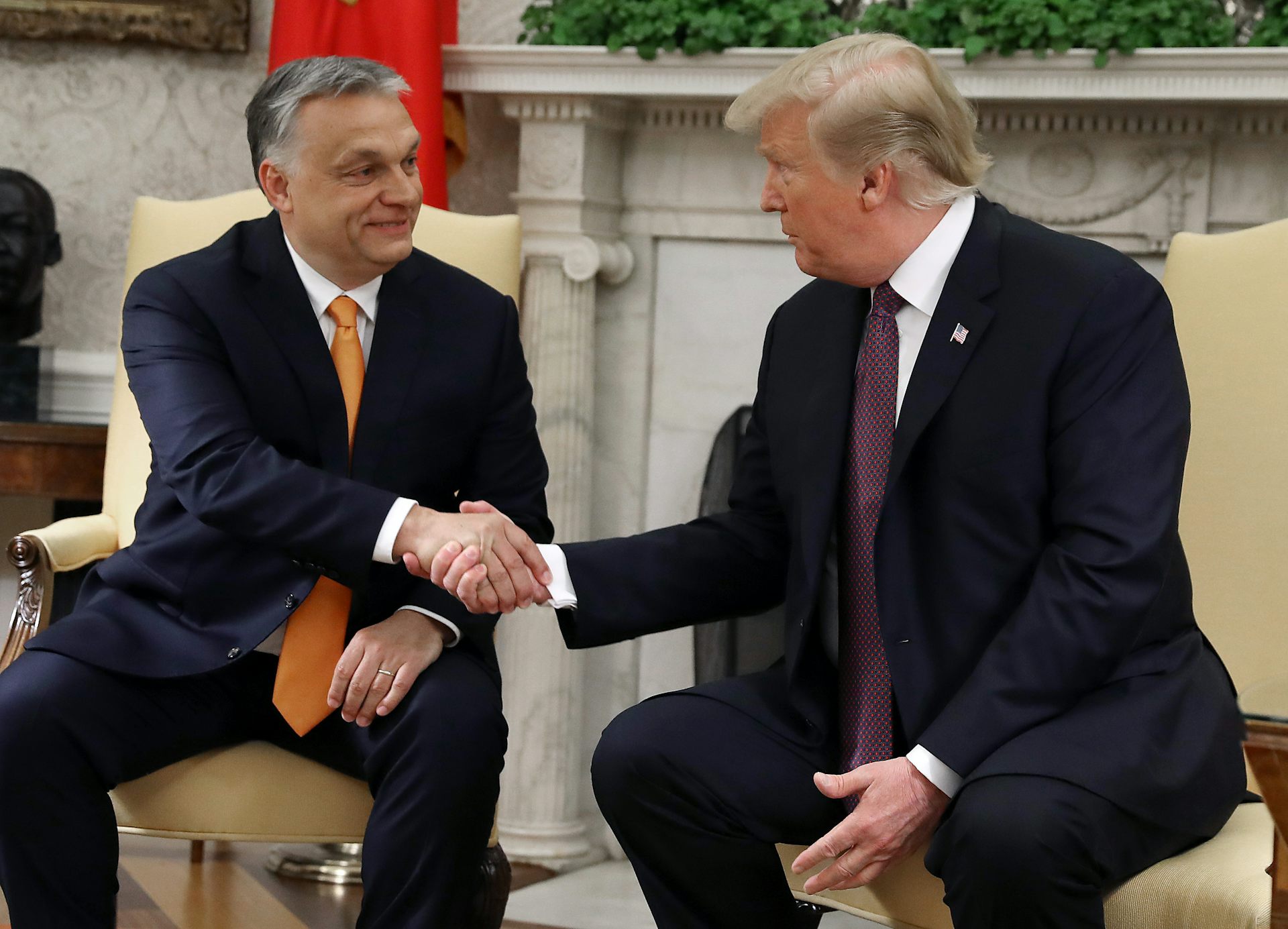After Eu Fines, Big Tech Wants Trump To Swoop In

An apparent setback for the U.S. tech sector — nearly $800 million in European Union fines against Apple and Meta — could be just what the industry needs to get its global anti-regulation campaign back onto President Donald Trump’s radar.
Tech lobbyists have long wanted Washington to push back forcefully on the European Commission’s 2022 Digital Markets Act, a package of antitrust rules that lobbyists claim unfairly targets American tech companies.
On Wednesday the first penalties came down under the act: €500 million against Apple and €200 million against Meta, along with significant requirements for both companies to change their business practices.
Now that the EU’s tech competition rules have finally hit U.S. companies directly, “we're starting to see the rubber hit the road,” said Katie Harbath, a longtime former public policy director at Meta.
Just hours after the penalties were announced, lobbyists for Meta and top tech groups attacked the fines — notably referring to them as “tariffs,” a legally debatable point seemingly designed to get Trump’s attention.
In a Wednesday statement, Joel Kaplan, Meta’s chief global affairs officer, said the EU’s €200 million fine — along with required changes to Meta’s advertising model — “effectively imposes a multi-billion-dollar tariff on Meta while requiring us to offer an inferior service.”
The EU’s fines mark an “escalation” in the transatlantic trade conflict, said Kay Hazemi-Jebelli, senior director for Europe at tech lobbying group Chamber of Progress, which is funded in part by Apple. He said the new penalties against Apple and Meta “should focus the U.S. administration's attention on the DMA in particular.”
The Trump administration appears ready to take the bait: In a statement to POLITICO, National Security Council spokesperson Brian Hughes called Wednesday’s fines against Apple and Meta a “novel form of economic extortion” that “will not be tolerated by the United States.”
“Extraterritorial regulations that specifically target and undermine American companies, stifle innovation, and enable censorship will be recognized as barriers to trade and a direct threat to free civil society,” said Hughes, calling for an end to “the EU’s regulatory death spiral.”
Harbath called Kaplan’s invocation of tariffs a “very clear” attempt to tie Europe’s tech regulations — including the DMA, which passed in 2022 and took effect in 2024 — into Trump’s 2025 trade war.
The tech industry’s record with Trump so far is mixed at best. While top tech CEOs have publicly cozied up to the administration — and in some cases appealed directly to the president — the Trump administration continues to press forward its antitrust cases against Meta, Apple and other tech giants.
“For Trump, it's all about what's in the best interest for Trump and the administration,” Harbath said. “All these companies are just trying to do whatever they can around the edges to sort of impact that.”
Asked whether Meta wanted Trump to target the DMA in upcoming trade negotiations, spokesperson Andy Stone did not comment directly, but flagged a report released last month by the U.S. Trade Representative that called the law a non-tariff trade barrier. He also pointed to Kaplan’s February claim that Meta “won’t shy away” from asking the Trump administration to defend the U.S. tech sector against EU rules.
Valdis Dombrovskis, the EU’s top economic minister, is slated to meet on Friday with Treasury Secretary Scott Bessent.
An Apple spokesperson declined to comment when asked if the DMA should be a negotiating point in U.S.-EU trade negotiations. The spokesperson called the bloc’s €500 million fine against Apple, and mandated behavioral changes, “bad for the privacy and security of our users” and said they “force us to give away our technology for free.”
Harbath said the EU may need to target additional tech companies, perhaps with higher penalties, before Trump threatens the bloc with tariffs specifically over the DMA.
“I think there's going to need to be potentially more,” she said. Harbath suggested the White House won’t really start to pay attention until the EU comes down on companies like X — the Elon Musk-owned social media platform that conspicuously avoided DMA fines on Wednesday.


